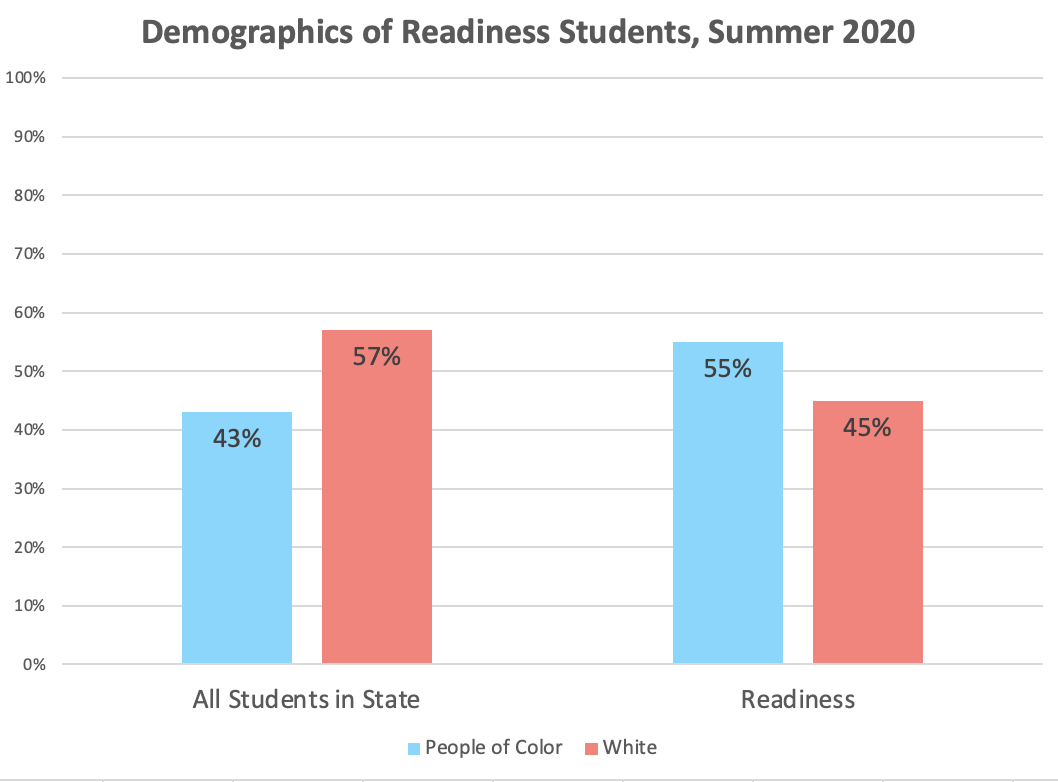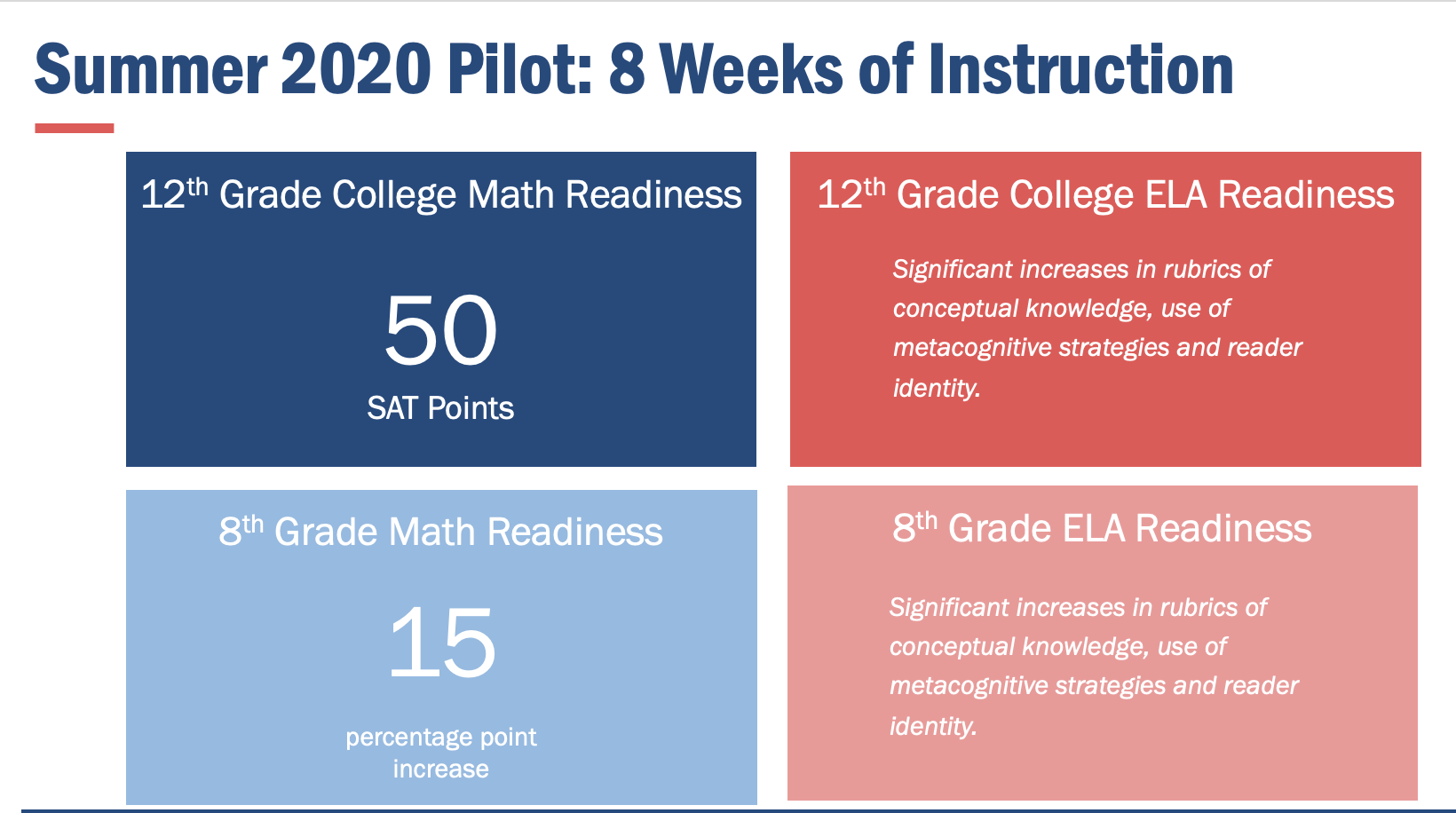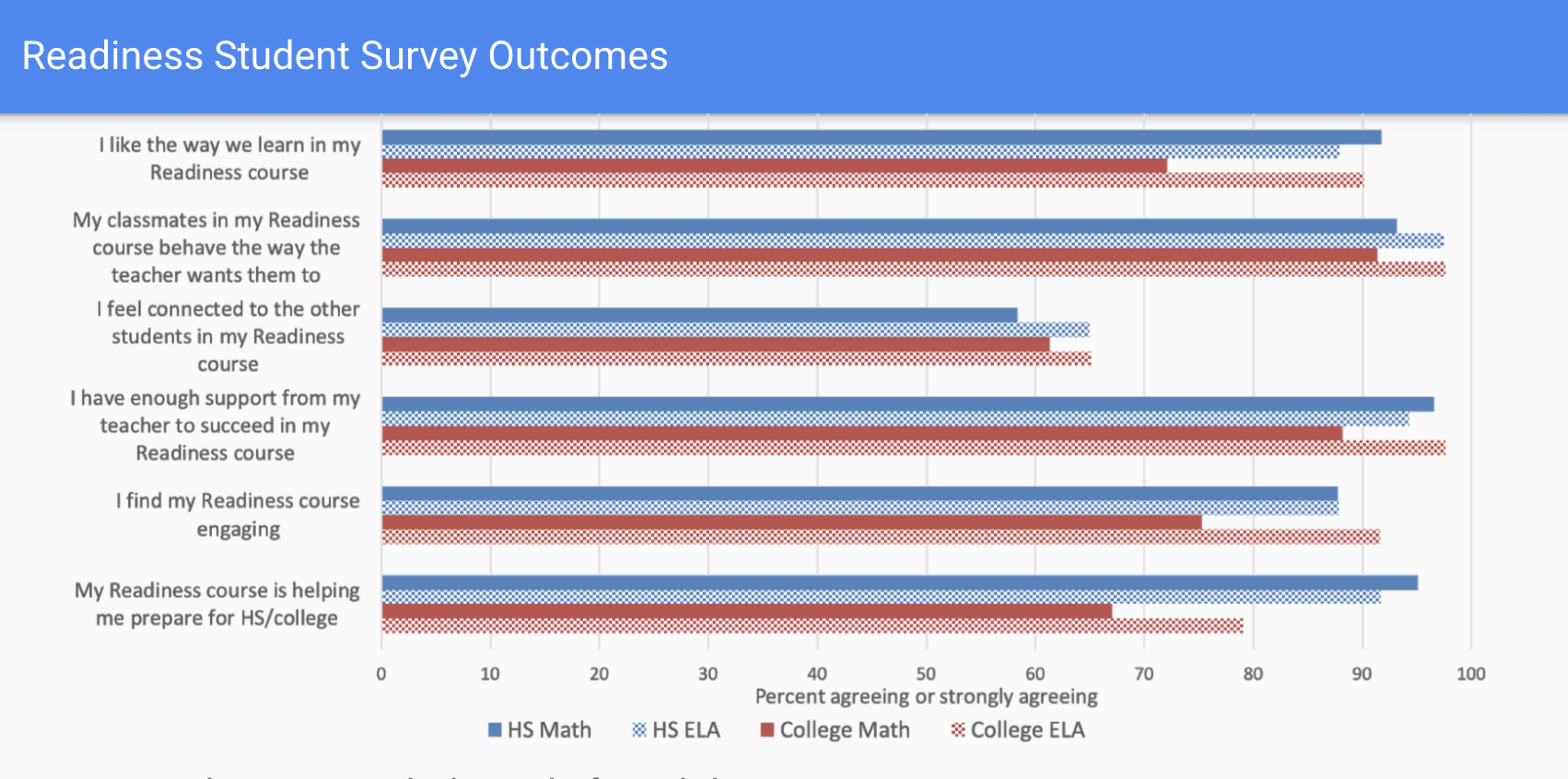Evaluation of Readiness Courses
Assessing the impact of Readiness courses is a priority for RIDE and our partners on the Readiness Project. See below for the methodology and results of the in-school pilot evaluation conducted by Harvard’s Center for Education Policy Research and the randomized control trial conducted by the American Institutes for Research with support from the Gates Foundation.
In-School and Virtual Readiness Course Pilots
Summer 2020 total enrollment: 1,686 students
In summer 2020, RIDE piloted 8-week, virtual versions of the four Readiness Courses for students across the state. Six percent of eligible students statewide enrolled, with over 10% of all rising RI 9th graders taking one of the 8th grade course options. We partnered with Harvard’s Center for Education Policy Research to conduct an evaluation of the course impacts. Outcomes for the 8-week course— both academic and social emotional— were impressive.
Equity:
Students of Color enrolled at disproportionately high rates in the Readiness Courses, with aligns one of the key goals of the Readiness Projecting: reducing race-based disparities in college access and success.
30% of Readiness students are from the urban core (vs. 28% statewide)
Persistence in the course over the summer was roughly equal across all subgroups
Compared to all teachers in the state, readiness teachers were less likely to be white and more likely to be male; In other words, readiness teachers are more likely to look like RI students compared to all teachers in the state.
Academic Outcomes:
12th Grade College Math: On average, students grew the equivalent of 50 SAT points from beginning to end of the course. Students who begun with below average skills grew the equivalent of 100 SAT points!
8th Grade Math: On average, students grew 15 percentage points on WestEd’s embedded assessment. Average scores increased from 65% to 80%
ELA Courses: Teachers reported statistically significant increases on in students scores on writing samples grading using WestEd’s rubrics of conceptual knowledge, metacognitive strategies and reader identity.
Social-Emotional Outcomes:
Over 85% of students felt they had sufficient support from their teachers to succeed in the class.
Over 75% of students in all four courses found the virtual learning in the Readiness Courses engaging.
Results from subsequent semesters will be posted as they are finalized.
Bill & Melinda Gates Foundation Support of Math Readiness in PPSD
This GatesNotes video features the Readiness Project and its work in PPSD.
RIDE was recently awarded a $1 million Balancing the Equation grant from the Bill & Melinda Gates Foundation to help bolster current efforts to expand math supports for multilingual learner (MLL) students in Providence Public Schools (PPSD).
RIDE’s partners - WestEd, the English Learners Success Forum (ELSF), Parents Leading for Educational Equity (PLEE), and Young Voices - are taking the existing High School Math Readiness class and revising the curriculum, providing teachers with meaningful professional development, and incorporating community feedback to make the course more supportive and culturally empowering for all students, especially MLLs.
The American Institutes for Research (AIR), the Gates Foundation’s evaluation partner, will conduct a randomized control trial in PPSD’s seven participating middle schools during the 2022-2023 academic year to evaluate course efficacy by comparing key outcomes of students who take Readiness and students who do not take Readiness. We expect to share results from AIR’s study in Spring 2024.
To learn more about the Gates grant and the corresponding study, please email rebecca.markarian@ride.ri.gov.
Interested in offering a Readiness Course at your school? Email allison.peters@ride.ri.gov.




